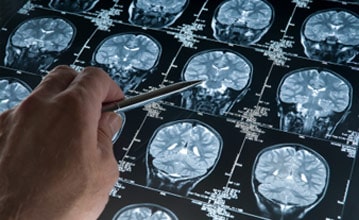5 Things To Know After Parkinson’s Disease Diagnosis
Parkinson’s Disease is a neurodegenerative disorder that develops slowly over years. The cause is still unknown, and there is currently no cure. While it is not typically fatal, the symptoms and complications can be very serious. Here are 5 things to know after Parkinson's Disease diagnosis.
Understanding Your Stage
Have a discussion with Dr. Seth Tuwiner in Leesburg about what stage of Parkinson’s Disease you are in at the time of your diagnosis. This will give you a sense of not only where you are in the progression of the disease, but what you can expect going forward.
Stage 1 has mild symptoms like tremors and movement symptoms. Stage 2 adds in rigidity, walking problems and poor posture. Stage 3 is a mid stage indicating loss of balance and slower movements. Getting dressed and eating can be a problem. Stage 4 is severe and you become limited in what you can do alone. Stage 5 is the advanced stage.
Understand YOUR Symptoms
Not everyone will have the same symptoms as others. You won’t necessarily have all of them, and you may not have them in the same order or intensity. Keep track of them, and report to Dr. Tuwiner any changes as you start new medications or if they are adjusted.
Consider A Movement Specialist
Besides your primary physician and Dr. Tuwiner, you might ask for a referral to a movement specialist. A specialist has a thorough understanding of what is happening in the field of Parkinson’s Disease. Studies have reported that getting care from a movement disorder specialist can increase your life expectancy and extend the time before you reach later stages of the disease.
Continue Or Increase Your Activity
Now is the time to get more active. Becoming more active will increase your chances of staying that way. Try swimming, hiking, or biking for starters. As we age it’s normal to be slower, lose muscle mass and coordination, but it will affect you even more with Parkinson’s. Stay ahead of the game with consistent activity.
Know You Can Still Have A Good Quality Of Life
Don’t give up on life.
Even though you have Parkinson’s Disease, there are many activities you can engage in to secure a good quality of life.
- Following all the therapies and working with your doctors will help treat your symptoms.
- Stay engaged with friends, family, and hobbies.
- Remain employed as long as you can.
- If you retire, don’t give up what you enjoy. Travel, join clubs, and enjoy life.
Contact Virginia Center for Neuroscience for a Consultation
To learn more about Parkinson's disease and how it may specifically affect you in your daily life, please contact our neurological specialists to schedule a one-on-one consultation to review your symptoms and potential treatment options. New patients may call our local office at (703) 293-5244.




